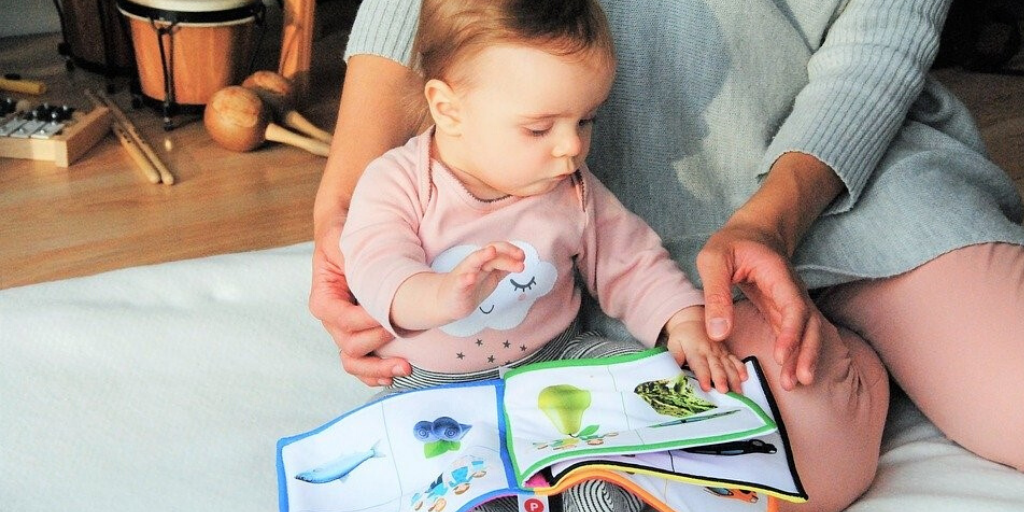
Small People, Big Feelings: Coping With The Quarantine
It can be hard for little ones to manage their feelings, especially during troublesome, chaotic times filled with changing routines. Read on to find out more about how you can help your little one cope with the changing world around them!
Although babies and toddlers are small in size, they have some big feelings! It’s important for parents to connect and empathize with how their little ones are feeling to help them deal with the stress of being quarantined in the house due to the COVID-19 pandemic.
Many parents worry about their child’s mental health during times like these. Thankfully, our children are more resilient than we give them credit for, but it is important to have an open, ongoing discussion with your kids about how they are feeling during this global crisis. Young children, especially babies and toddlers, don’t have the means or vocabulary to express their feelings, and may often express their emotions in other ways such as acting out or shutting down. Pay attention to your children’s cues and constantly reassure them that they are loved, they are safe, and they are valued.
A great way to teach young kids about feelings is through books. Here is a list of the top 10 books to teach children about feelings.
-
Hands Are Not For Hitting by Martine Agassi
-
Daniel Tiger’s Neighborhood: I’m Feeling Mad by Natalie Shaw
-
The Feelings Book by Todd Park
-
Duck and Goose: How Are You Feeling? by Tad Hills
-
Llama Llama Misses Mama by Anna Dewdney
-
Baby Faces by Margaret Miller
-
Lots of Feelings by Shelly Rotner
-
My Many Colored Days by Dr. Seuss
-
Grumpy Bird by Jeremy Tankard
-
I Like Myself by Karen Beaumont
Here are some of the top KeaBabies tips for helping kids cope with the quarantine:
1. Acknowledge the struggle. Ask your child to describe how he feels. Obviously, older children and teenagers can label feelings much easier than younger children and toddlers. With very young children and babies, try to get on their level, make eye contact, and give them verbal options of things they might be feeling. For example, if your toddler is having a meltdown, try kneeling in front of her and saying “You look like you’re very upset about something. Can you help me understand what the problem is? Try pointing to it if you don’t know the word.” Always guide children in expressing their emotions, as they may not have the vocabulary to describe how they truly feel.
2. Work on reaching out to others. Make sure that your children stay connected to people in their lives. Whether it’s teachers, friends, or family, try to maintain contact with the people that have a big influence on your child’s life. A simple phone call or letter in the mail can make a big difference. If your child is used to going to library storytimes or weekly activity classes, check online to see if those places are offering virtual classes during the quarantine.
3. Keep a good routine. Studies show that keeping a schedule can greatly benefit mental health. Try to maintain some sort of daily schedule with your children. If you have school-aged children, set “school hours” and “play hours,” and try to stick to a similar routine each day. Take breaks from work throughout the day, and get up and move! Give your children chores or responsibilities to give them a sense of purpose and accomplishment. Teach your little ones new skills such as painting or cooking.
4. Get enough sunlight. Natural light is a great mood-booster. Try to get outside in the sun for at least 30 minutes every day. A quick neighborhood stroll or some backyard playtime can help your little ones adjust to life at home. Make sure to differentiate daytime and nighttime, as this can improve sleep quality. As evening approaches, turn off or dim the lights, lower the sound on the television, shut the windows and curtains, and if you can, avoid electronics. During the day, keep as much light in the house as possible. This is also a great technique for helping newborns that have their days and nights confused!
5. Limit screen time. Although this is a tough one for many parents, researchers urge parents to strictly limit screen time for babies and toddlers between 0 and 2 years old. Too much exposure to electronics can have a negative impact on mental health and concentration later in life. Screen time also takes away from positive person-to-person interactions. As tempting as it is to search for “educational” programs or apps for your little ones to watch, nothing can ever replace the value of quality time talking, reading, and signing with a parent or caregiver. Of course, all parents deserve a break, and avoiding screens altogether just doesn’t make sense in some families. Don’t feel guilty if your little one watches television, but try to balance screen time with plenty of time exploring outside, doing art projects, flipping through books, and playing together.
Managing your little one’s feelings during these troublesome times can be tricky, but following the advice above can help your children cope with uncertainty and changing daily routines. Make sure to always check in with your children to help them feel safe, loved, and secure!
Do remember to follow us on Instagram @keababies and join our loving and supportive KeaCommunity Facebook Group!
Parenting is awesome. Sleep is overrated. Every day is an adventure.
|
|
Meet Our KeaMommy Contributor: Kaitlyn Torrez I’m Kaitlyn Torrez, from the San Francisco Bay Area. I live with my husband and two children, Roman and Logan. I’m a former preschool teacher, currently enjoying being a stay at home mom. I love all things writing, coffee, and chocolate. In my free time, I enjoy reading, blogging, and working out. |


























































